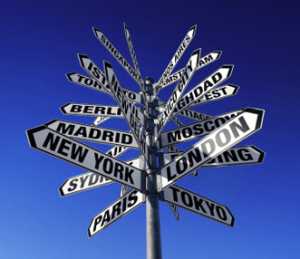Caritas Ghana launches SMART to tackle irregular migration
 Caritas Ghana, a charity orgnisation of the Ghana Catholic Bishops’ Conference, has launched the Support Services for Migrants And Refugees in Transit (SMART) to address irregular migration in Ghana.
Caritas Ghana, a charity orgnisation of the Ghana Catholic Bishops’ Conference, has launched the Support Services for Migrants And Refugees in Transit (SMART) to address irregular migration in Ghana.
With support from the Dicastery for Promoting Integral Human Development at the Vatican, the project aims to improve the institutional capacity of Caritas Ghana to respond to the relief and emergency needs of migrants and refugees in Ghana.
As part of its second strategic objective, the project would ensure that migrants, refugees and their families, and communities shift their perspective of success and failures related to migration.
It further aims at offering altruistic assistance and the rehabilitation of returned migrants and refugees in Ghana particularly in nine out of the 16 regions of Ghana namely, Ahafo, Bono-East, Greater Accra, Northern, Upper East, Upper West, Volta, Western and Oti.
The project was designed to achieve an overall goal of providing “responsive humanitarian assistance and reintegration support for returned migrants and refugees in Ghana and curtail the menace of irregular migration from Ghana into the West through Social and Behavioural Change Communication activities in the communities by 2025.
Motivated by strategic objective five of the Caritas Ghana’s Strategic Plan, the project framework seeks to “promote youth self-employment and empowerment and outcome 5.3 focusing on migration managed to eliminate or minimise its negative impact and optimise its positive impact.”
The project framework will target 18,000 direct beneficiaries and over 145,000 indirect beneficiaries through different mediums and interventions by providing emergency relief services to returned migrants and refugees and reintegration support for them.
Rev. Sr. Regina Ignatia Aflah, Project Coordinator, Human Rights and Justice, speaking at the launch of the project, said as part of the strategic objective of the project, a migrants and refugee call centre and an inter-sectoral coordinating mechanism would be established to protect the interest of migrants and refugees.
She, therefore, called for stakeholder support to enable Caritas Ghana harvest as many outcomes as possible to secure the future of the country’s labour force which was under threat due 5o irregular migration.
Mrs Clara K. Beeri Kasser-Tee, Member, Caritas Ghana Board, remarked that voluntary and forced migrants such as refugees had various needs but little access to have those needs met, including those by state entities for various reasons.
She said there were instances of persons who tried to get into western countries through dangerous and irregular means with many of them losing their lives and others arriving at their intended destinations only to realise that “all that glitters is not gold”.
Although there were different reasons for migration, Mrs Kasser-Tee noted that, one of the reasons was economic because people wanted better lives, and that particularly from the African continent to other western countries, there was the belief that once they got there, their economic needs would be met.
She said: “In most cases, they arrive there, and realise that they were probably better off at home. Some after arriving there, do realise that they wanted to come back home but they look at how well their colleagues are doing back home and that makes them uncomfortable to come back.”
Mrs Kasser-Tee, also a lawyer and lecturer in legal and the policy aspect of migration studies, emphasised that reintegration was a critical part in dealing with irregular migration menace and that “there are some willing to return, but their major obstacle is reintegration”.
She further stated that there was the issue of involuntary migrants or forced migrants who leave their countries not by their own accord, but because of other militating issues in their regions.
The Caritas Ghana Board Member said, there were a series of issues in migration to be tackled to ensure that people’s rights were respected and that they got the needed support to protect their rights and to be reintegrated back into their societies.
Mr Mario Almeida, Representative, Dicastery for Promoting Integral Human Development (DPHD) – supporters of the project – speaking virtually from the Vatican, said the mission of the Dicastery, supported by the Holy Father and the church structures, was to promote integral human development, ensuring that no one was excluded.
Therefore, Mr Mario, also the Africa Region Coordinator, Listening and Dialogue Section, added that “the approach of Dicastery is to listen, dialogue and reflect, and discern, propose and support effective responses aimed at integral human development.
Source: GNA
